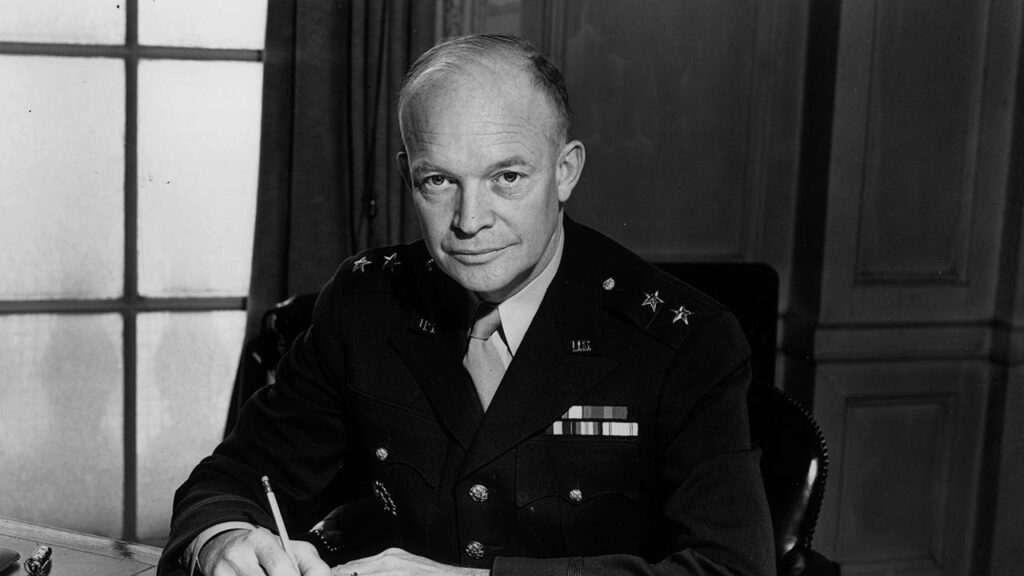Future president Dwight D. “Ike” Eisenhower was appointed commanding general of the European Theater on June 25, 1942. Born in Texas and raised in Kansas, Eisenhower began his military career when he received an appointment to West Point, according to the White House website. After graduating with the West Point class of 1915, Eisenhower was stationed in Texas as a second lieutenant. There, he met Mamie Geneva Doud, and the two were married in 1916.
Eisenhower was in charge of a tank training center during World War I, as noted by the Museum of the American G.I. Following the war, he worked in the Panama Canal Zone and attended the Army War College, graduating at the top of his class, said the museum. Eisenhower continued to climb the ranks of the military, excelling in staff assignments under Generals John J. Pershing, Douglas MacArthur, and Walter Krueger, as reported by the White House website. After the United States entered World War II, Eisenhower took over the Army War Plans Division to draft a basic strategy for the war against the Axis, according to Military.com.
On June 6, 1944, the U.S. and its allies invaded Normandy in the greatest military invasion in history. Eisenhower’s leadership skills were on full display during Operation Torch, the invasion of North Africa in November 1942. By the end of 1943, Eisenhower had successfully conducted landings in Sicily and Italy and negotiated an Italian surrender. Eisenhower was then named supreme commander of the Allied Expeditionary Force for the invasion of Europe, known as Operation OVERLORD, now famously remembered as D-Day.
After World War II, Eisenhower was appointed as chief of staff of the United States Army, a position he held until February 1948. Following a brief tenure as the president of Columbia University, Eisenhower was persuaded to run for president. In January 1952, he announced his candidacy as a Republican, adopting the catchy slogan “I Like Ike.” Eisenhower won the presidency by a landslide in November 1952, becoming the first Republican president in 20 years. He went on to serve two terms, defeating Democrat Adlai Stevenson II once again in November 1956.
Before leaving office in January 1961, Eisenhower highlighted the importance of maintaining military strength while cautioning against excessive military expenditures. He emphasized the need for peace, stating a prayer for peace “in the goodness of time.” Eisenhower retired to his farm in Gettysburg after two terms as president, leaving behind a legacy of leadership, military prowess, and commitment to peace.












